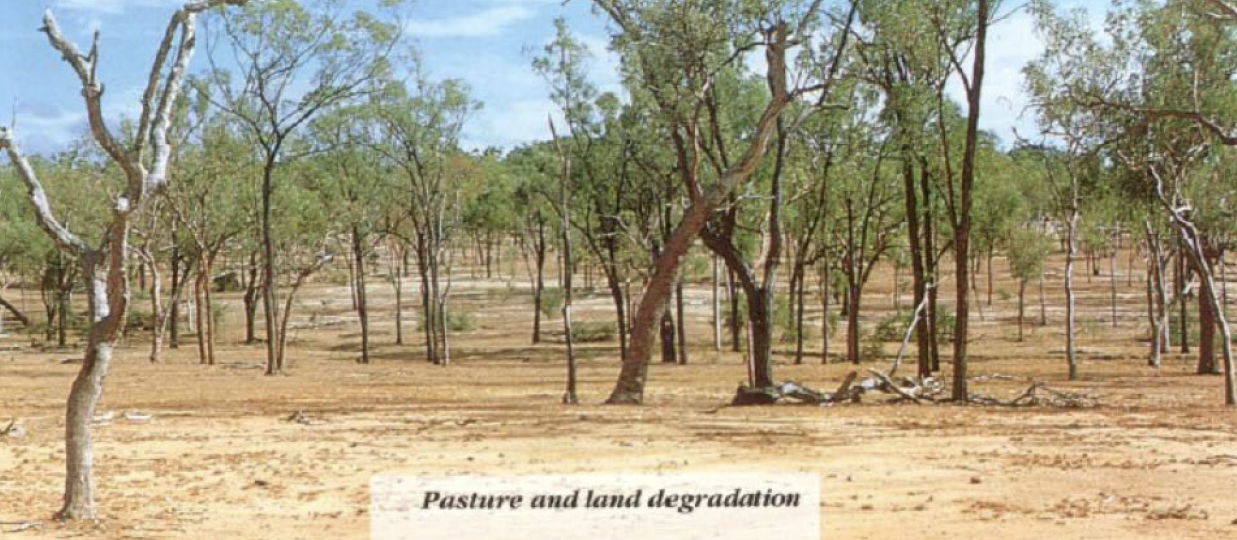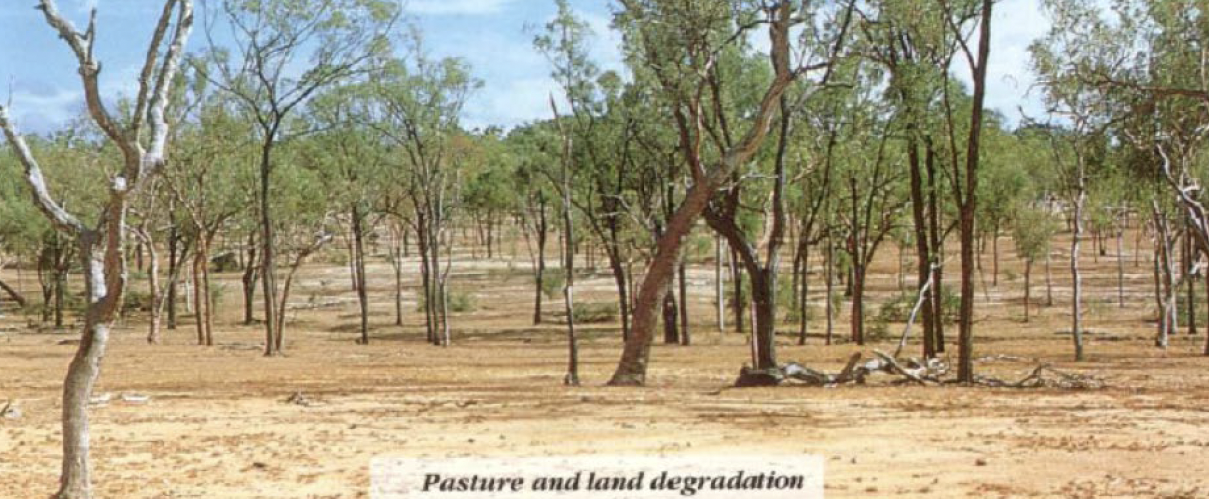L4 - Ecology of Native Pastures
1/51
There's no tags or description
Looks like no tags are added yet.
Name | Mastery | Learn | Test | Matching | Spaced | Call with Kai |
|---|
No analytics yet
Send a link to your students to track their progress
52 Terms
factors that affect native pasture composition, yield:
natural
-soil
-climate
-plant adaptation
factors that affect native pasture composition, yield:
man
-grazing
-animal spp differences
-burning
summary:
soil type
-provides nutrients
-stores moisture
key soil attributes that affect productivity and ecology
-soil nutrient fertility
-permeability
-water holding capacity
-susceptibility to soil erosion
soil types across N Aus:
clay soils
-brigalow belt
-darling downs
-mitchell grasslands
soil types across N Aus:
soil types across N Aus:
deep sands
-spinifex (trioda) country
soil types across N Aus:
massive earths
cape york
soil types across N Aus:
shallow stony soils
mulga country
soil types across N Aus:
texture contrast soil
-sandy top w clay in the lower horizon
-speargrass country
summary:
weather and climate
-greater influence on productivity & ecology than soil
-key parameters are amt, seasonality, variability of rainfall
-T less influential
summary:
droughts
-severe droughts occur once every 10 yrs
-need drought strategies
what is used to predict rainfall patterns?
SOI (southern oscillation index)
practical implications of climate constraints
-carrying capacity determined by worst part of year
-annual animal management tied to seasonal nutrition
-year to year variability of forage supply much greater than ability to vary livestock numbers
-livestock numbers often out of phase with forage supply
-unusual rainfall occurrences leads to large scale death or recruitment of plants

what has invaded this pasture?
Bothriochloa pertusa (Indian couch)
plant growth adaptions (2)
-to low fertility
-to drought
adaptations:
drought
-dormancy and germination mechanisms in arid areas → long term survival of seed in soil
-morphological adaptation to moisture stress
-physiological tolerance of moisture stress, e.g. ability to grow at low leaf tissue water potentials
-some spp long lived
effects of grazing
-light grazing, regular burning
-Europeans increased grazing P, less frequent burning, changes in composition in native pasture communities
-rangelands vary in their response to grazing
grazing effects on ecology of native pastures
-Native perennial, productive, palatable grasses decrease under grazing
-Less palatable perennial & annual grasses, weeds increase under grazing
grazing:
animal preferences
-palatable species
-relatively tree free
-flat terrain
-water
-shade
what type of diet do horses prefer?
-grass (90%)
-herbs/forbs (4)
-browse (6)
diet preference:
cattle
-grass (70%)
-herbs/forbs (20%)
-browse (10%)
diet preference:
sheep
-grass (60%)
-herbs/forbs (30%)
-browse (10%)
diet preference:
goats
-grass (30%)
-herbs/forbs (40%)
-browse (30%)
diet preference (%):
kangaroos
-grass - 60
-herbs/forbs - 30%
-browse - 10
how is excessive tree growth due to over-grazing controlled?
-burning at beginning of wet season
reasons to burn
Control woody regrowth
Remove unpalatable material & stimulate regrowth
Reduce fire hazard
Attract animals to ungrazed areas
Destroy animal and plant pests
Prepare seedbeds
Control pasture composition
Improve wildlife habitat
reasons not to burn
-Fire may kill green plant material & soil surface is laid bare
-Perennial plants reduced, opening up community for undesirable plants
-Seed may be destroyed, or scarified causing no/high germination
-Fire consumes all herbage, creating a short term shortage
-Destroy wildlife habitats
characteristics:
shallow stony soils
-infertile
-avg permeability
-low water storage
-high erosivity
characteristics:
deep sands
-v infertile
-high permeability
-low water storage
-high erosivity
examples of tall grass (N. Aus)
-fire grass
-ribbon grass
-native sorghum
-blady grass (coast)
-black spear grass
what grasses are found in inner QLD?
-brigalow
-wire grass/blue grass
-Mitchell grass
-Mulga
which soil types are infertile? (3)
-shallow stony soils
-red, yellow, gray earths
-texture contrast soils
N. Aus:
fertile soils
-cracking clays
N. Aus:
VERY infertile soils
deep sands
high erosivity soils (N. Aus)
-shallow stony soils
-deep sands
-texture contrast soils
low erosivity soils (N. Aus)
-cracking clays
avg erosivity soils (N. Aus)
-red, yellow, gray Earths
high permeability soils (N. Aus)
-deep sands
avg permeability soils (N. Aus)
-shallow stony soils
-cracking clays
-red, yellow, gray earths
low permeability soils (N. Aus)
-texture contrast soils
high water storage soils (N. Aus)
-red, yellow, gray earths
low water storage soils (N. Aus)
-shallow stony soils
-deep sands
-texture contrast soils (low-avg)
avg water storage soils (N. Aus)
-cracking clays
what biological factor has the least impact on soil?
T
what biological factor(s) has the highest influence on soil?
-weather
-climate

-land invaded by Bothriochloa pertusa (Indian couch)

Kangaroo grass
Themeda triandra
(tolerant to low fertility)
example of long-lived spp?
-Kangaroo grass
(Themeda triandra)
how do goats graze?
-eat more browse
-graze higher layers of vegetation (no direct competition with sheep, cattle)
definition:
browsing
-eating leaves, twigs, bark, and shrubs (woody plants, bushes, small trees)
definition:
grazing
-eating grasses and herbaceous (non-woody) plants at ground level